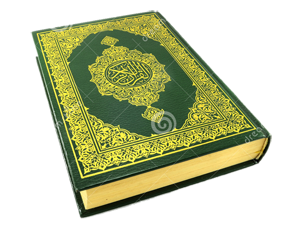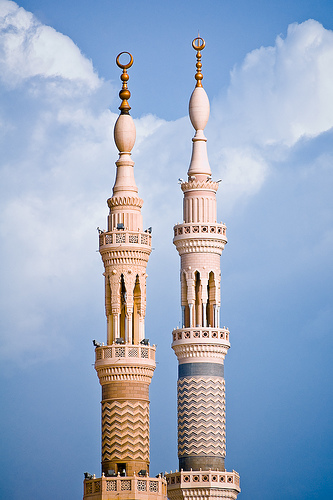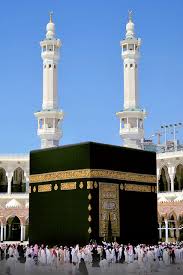Principles of Governance in Islam
Ruby Amatulla
In well over 6,000 verses the Quran does not provide any specific system of governance. I believe it is deliberate. A system of governance should evolve as human race progresses through time. However, the Quran lays down some fundamental principles that are timeless. Any ruling system anywhere anytime should comply with these fundamental concepts to help create a stable, peaceful, and progressive society.
Interestingly the understanding and acceptance of the principles of modern democracy as these are evolving over the last few hundred years are increasingly in accordance with these ideals of the Quran. It is most unfortunate that these ideas are missing from the general conversation or awareness in the Muslim world. It is long overdue the scholars and thinkers should attempt to bring these ideas and ideals to the consciousness of almost one-fourth [23%] of humanity that believe the Quran is the word of God.
I am most humbly laying down these concepts, as I could grasp as follows:
The purpose of governance in Islam is to establish a just society.The Quran alludes that a society cannot attain peace and sustain stability without establishing justice. Therefore discrimination, misuse and abuse of power, corruption, bad leadership, crimes, prejudices, arrogance, excessive greed, envy and other vices that obstruct justice also hinder peace.
These failures are all related to violations of rights or that is due [‘huq’ in the Quran] to a person. Therefore the key to governance is to uphold rights. An injustice occurs when a person individually or a people collectively do not get that is due to him/her/them.
There are some basic rights that a person can claim just by being a human being: Among these are the right to life, liberty, equality, dignity, own and dispose of property, privacy, etc. The Quran lays down these rights many centuries earlier than the thinkers of the European Enlightenment period could grasp and articulate these rights as ‘inalienable’. ‘The Enlightenment’ period thinkers influenced the Founders of the America Revolution in bringing about the modern concept and structure of a democratic state. That, in turn, influenced the modern world.
A Western thinker, Robert Briffault, rightly asserts that humanity is indebted to the Quran for its progress. He says, “The ideas that inspired the French Revolution and the Declaration of Rights that guided the framing of the American Constitution and inflamed the struggle for independence in the Latin American countries [and elsewhere] were not inventions of the West. They find their ultimate inspiration and source in the Holy Koran.”
Briffault concurs with scholars such as Thomas Carlyle, Goethe, Margoliouth and many others in their assertions that the Scripture contains seminal ideas about human life and society that are timeless, comprehensive, and very progressive.
Besides these fundamental human rights there are also rights that arise from being born into a society such as citizens' rights or the right of a member of a ‘umma’ [community], fraternal rights, members’ rights in an organization, etc.. There are rights that are established in a relationship such as spousal rights, parental rights, children’s rights, etc. Still, there are other rights that are established through human activities and affairs such as workers’ rights, managers’rights, investors’ rights, contractual or mutually agreed rights, etc.
In Islam any violation of a right amount to an injustice, the greater the degree of violation, the greater the injustice.
The Quran proclaims that a human being is a ‘khalifa’ or vicegerent or representative of God on earth [Quran 2:30, 6:165, 27:62 ]. This relationship between God and a human being establishes the fundamental rights and responsibilities of a person.
Collectively, a people, being the representatives of God, are sovereign in a land. This sovereignty of people does not clash with the Sovereignty of God: the former is temporal and limited and the later is timeless and unlimited. as they are the representatives of God. A similar concept in the Quran allows to own and dispose of a property as a fundamental right of a person. However, only God is the owner and Disposer of everything in the universe in the true sense. Many misconceptions arise from not understanding the difference. People’s sovereignty represents, collectively, God’s Sovereignty on earth as people are God’s representatives on earth. God’s Sovereignty is the source of a people’s sovereignty in a land.
Being a ‘khalifa’ of God all people are equal and free. The concept of the Day of Judgment rests on the idea that God grants the freedom of choice or liberty to all human beings, and therefore they remain accountable and answerable to God.The right to life comes from the idea that God blows His own Spirit into a human being at the time of creation [15:29] thereby making a life sacrosanct. Killing a human being is prohibited except in the way of law of a land and/or fighting a war against the spread of massive injustices and oppression or when a war is initiated by others.
Therefore the fundamental ‘inalienable’ rights articulated by the founders of modern democracy through the American Revolution : the rights to equality, liberty, & life are thus established in the Quran through the relationship between God and humans. The Quran also explicitly provides the right to own and dispose of properties.
According to the directives of the Quran a society and its government must uphold these rights or ‘huq’ of a people. This can be achieved if a government remains accountable to the people it governs. If people hold the ultimate power in a society and the government derives its legitimacy to rule from the people it rules then that government remains obliged to uphold people’s rights. This is the key idea of a democratic governance.
Justice is connected with the true ‘nature’ God has endowed human beings with [‘fitratulla’ Quran 30:30]. Complying with the dictates of this ‘nature’, the Quran declares, is the one ever-true religion for mankind. Any deviation from this ‘nature’ amounts to injustice, the bigger the deviation the greater the injustice. Human rights are deeply connected to this “nature’ that determines what is due to a human being. A violation of rights is, therefore, a violation of this ‘nature’ and tantamount to injustice.
The ‘natural rights’ of a human being: that is how the Western scholars coined these fundamental rights as if they snatched these ideas right from the Quran. They saw clearly the connection between the innate human nature and the rights that are needed to comply with this nature. In order to help achieve a person’s potential and fulfillment these rights must be preserved, protected and defended. They thought the form of government that could best protect these rights is democracy in which the people hold the power and their representatives govern by virtue of the people’s consent.
One primary idea is that a ‘khalifa’ of God [ a human being ] cannot be a subject of a ruler, he/she can only be a citizen of self-rule. Because if all Khalifa or people are equal in status on earth, a group of people cannot rule over another group without taking the consent of the later. A process of taking that consent could be an electoral process of democracy.
The scripture advocates broad decision-making processes in a society. Consultation is given paramount importance in disposing of a state’s affairs [Quran 3:159, 42:38].
Pluralism and tolerance are advocated in a society. Believers should work harmoniously and respectfully recognizing that diversity is God’s Will and only God can judge piety of a person. Therefore believers should cooperate and promote common good with others and maintain humility in doing so [ 5:48 ].
The Quran teaches humanity how checks and balances should be maintained in a society in 2:251 and warns that without these checks and balances rampant corruption and the dysfunctional state would ensue in a society [22:40]. The Book commands to incorporate ranks and different positions to facilitate human affairs [43:32].
A government made of the representatives of the people also are entrusted with people’s welfare and the common good. The Quran commands the believers to uphold trust whenever they are trusted [4:58]. Therefore the idea of ‘social contract’ – developed by the thinkers of the European Enlightenment period -- can also be derived from the directives of the Scripture related to individual and collective trust and responsibilities. Thus the trust placed by the ruled on the ruler and vice versa through their mutual consent demand fulfilling their respective rights and responsibilities in the governance of a society.
The Quran proclaims that there is no compulsion or coercion in the matters of faith [2:256]. A state apparatus are coercive and compulsive. Enforcing a religious injunction through the apparatus of a state – that are coercive and compulsive – violate this fundamental tenet of Islam. Such an enforcement violates the religious freedom Islam grants for those who do not agree with the interpretation of the injunction and those who belong to another religion. There could be a separate court such as a Sharia court to enforce such religious laws only on those who willingly choose the jurisdiction of such court.
The followers of the Quran should pursue to incorporate these principles and ideas laid down in the Book that is now universally accepted as essential features of a healthy democratic system of governance.
The believers should always bear in mind that to comply with the dictate of ‘fitratulla’ – the faculty of conscience that consists of the ability to reason and spiritual capacity – is the one ever-true religion [al-Din al-Hanif] of all Muslims and of mankind [30:30]. Therefore whatever is good and reasonable that upholds justice and fairness and promotes the common good is Islam. If a state assumes a religious identity and enforces one set of interpretation of the religion, as interpretations vary among different schools of thoughts and different individuals, it creates a system prone to on-going conflicts and dissension. Creating a conflict-prone system is against the spirit of Islam.
Dr.Tariq Ramadan, a renowned scholar of our time, rightfully said in reference to America and its constitution that "Everything which is good in this country is our Shariah." (http://www.ocweekly.com/news/tariq-ramadan-shariah-law-and-us-constitution-go-hand-in-hand-6466624). If that is the spirit of all Muslims all conflicts and radicalism and extremism would vanish and peace would prevail.
Modern scholars like Professor Ramadan who are advocating reform in the existing Sharia law is perhaps because there are too many controversies, inconsistencies, and some violate the spirit of Islam and are totally incompatible with the modern sensibilities of humanity. Our too dogmatic and parochial approach and our ignorance have driven us away from the values and principles of Islam and led us to a stagnated, downgraded, and conflict-prone world dictated by others. Others, however, also bear responsibilities of their failures contributing to the failed state of many Muslim- majority societies, however, that does not absolve us of our own undoings.
Human beings are God’s vicegerent on earth. Therefore they should take care of their affairs the way God does: with care and compassion, with checks and balances, with discipline and order, with due regard for diversity, and with fairness and justice for all human beings irrespective of their religion, race, color, gender, ethnicity, etc. These should be the guiding principles in the governance of a society.
The Charter of Medina or Sahifat al-Madina incorporated these principles more than fourteen centuries ago for the very first community Prophet Muhammad [pbuh] established in Medina. A society was much simpler and smaller than a country state of modern times. Still, the ideas incorporated in the Charter very much resemble that of a federal democratic system of the modern time. The right to liberty, equality, dignity were given to all in the community consisting of different followers of faith with common responsibility for security and discipline. The Quranic law was not enforced on the believers of other faith. They were free to follow the guidelines of their own scripture.
Many modern day scholars such as Professor Aziza al-Hibri marvel at the striking resemblances between the Charter of Medina written in the seventh century and the Constitution of the United States framed eleven centuries later.
"When you have people approach you and say, 'You need to respect our system,' you can tell them that we are already inside," Dr. Ramadan said. "The problem is that we are ignorant of our own history."









